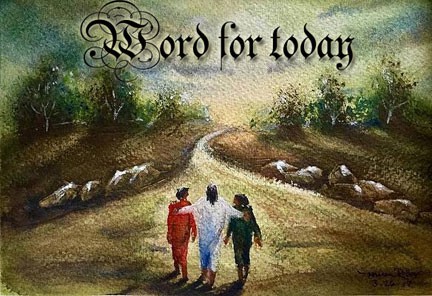Watch
Events
Articles
Market
More
Christian prophetic thought has long understood that God’s timetable centers on Israel. It’s actually more than that, as Samuel Wearp can tell you. Not only is Israel the center of prophecy, it’s the reason for prophecy. The entire history of humanity revolves around God’s creation, redemption, judgment, restoration, and exaltation of His covenant nation of Israel.
Samuel has been connected to Israel for many years, particularly through his family’s business, Blessed Buy Israel, and the bridgebuilding work of Ten From the Nations. Now, as a new husband, he and his wife, Keila, are embarking on a new phase of their journey in support of Israel and the Jewish people. Their work is called Rising Sparks, a ministry with the goal of helping Christians connect to Jesus, Israel, and Judaism through a biblical lens. Their first major project is a sheep shearing expedition to Israel to assist Judean shepherds! Samuel tells us about that and much more in this engaging interview
https://www.buzzsprout.com/229....2194/episodes/166585



Christian prophetic thought has long understood that God’s timetable centers on Israel. It’s actually more than that, as Samuel Wearp can tell you. Not only is Israel the center of prophecy, it’s the reason for prophecy. The entire history of humanity revolves around God’s creation, redemption, judgment, restoration, and exaltation of His covenant nation of Israel.
Samuel has been connected to Israel for many years, particularly through his family’s business, Blessed Buy Israel, and the bridgebuilding work of Ten From the Nations. Now, as a new husband, he and his wife, Keila, are embarking on a new phase of their journey in support of Israel and the Jewish people. Their work is called Rising Sparks, a ministry with the goal of helping Christians connect to Jesus, Israel, and Judaism through a biblical lens. Their first major project is a sheep shearing expedition to Israel to assist Judean shepherds! Samuel tells us about that and much more in this engaging interview
https://www.buzzsprout.com/229....2194/episodes/166585



For if your brother is grieved by what you eat, you are no longer walking in love. By what you eat, do not destroy the one for whom Christ died.
Romans 14:15 ESV
In the context of eating meat that could have been sacrificed to idols, what you eat could grieve your brother in 3 ways.
1. He could be disgusted by it, making fellowship difficult.
2. He could believe you are engaging in idolatry by eating meat that was dedicated to a false god.
3. He might take your liberty as permission to do something counter to his own conscience.
Pressuring someone to violate his own conscience could lead to him to committing an actual sin because he no longer trusts his own judgment. Overruling your own conscience in one case makes it that much easier to overrule it in the next, until you really are crossing the line into what God has forbidden.



Please read the following Bulletin for our upcoming Sabbath this week as well as the upcoming Passover celebrations. This information is critical. Please do not miss this week's bulletin: https://firstfruits.cc/blog/20....25/04/10/sabbath-bul



So do not let what you regard as good be spoken of as evil.
Romans 14:16 ESV
The "good" isn't your liberty to eat whatever you want, but your table fellowship with your brother and the Kingdom of God and the righteousness and peace and joy mentioned in the next verse, not whatever you believe about meat or diet or any man-made religious traditions. "Don't destroy him for whom Christ died. Don't therefore make your dining together into a cause for him to speak evil of you and that Kingdom."



041025
WORD FOR TODAY “are you to do this today?”: Exo 12:13 'The blood shall be a sign for you on the houses where you live; and when I see the blood I will pass over you, and no plague will befall you to destroy you when I strike the land of Egypt. Exo 12:14 'Now this day will be a memorial to you, and you shall celebrate it as a feast to the LORD; throughout your generations you are to celebrate it as a permanent ordinance.
WISDOM FOR TODAY: Pro 3:5 Trust in the LORD with all your heart And do not lean on your own understanding.
www.BGMCTV.org




Ezra 6:22, 'And kept the feast of unleavened bread seven days with joy: for the Lord had made them joyful, and turned the heart of the king of Assyria unto them, to strengthen their hands in the work of the house of God, the God of Israel.” The feast of unleavened bread was observed with joy, that is worth repeating. Doing without something familiar is often considered a burden, but looking forward to our Creator preparing to change the world is worth celebrating.


